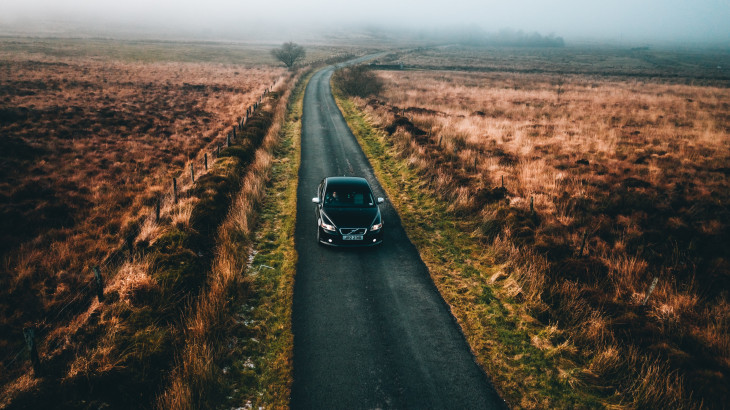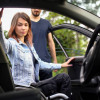By The Acclaim Team on 02nd December 2020 in News
Vehicle breakdowns are far more common in the winter with it being reported that car breakdowns are soaring by around 20% each winter, according to the Express. Road conditions become more challenging and drivers are more likely to experience problems with their motors, whether it be issues relating to a dead battery, non-starter, engine warning lights activating or issues with flat tyres.
While most of the issues relating to breakdowns in winter are very easily avoidable, it’s important to know how to keep your car safe and running on the roads this winter, particularly as we approach Road Safety Week between the 16th and 22nd November.
If you’re new to the roads or are simply making sure that your winter checklist is ticked off this winter season, this guide can help you to keep your car safe. Here are some winter driving tips to keep you and your car safe this winter!
Antifreeze
As temperatures begin to plummet in autumn, your engine will inevitably become more strained. Antifreeze stops the water in your engine's cooling system from freezing and is a vital car fluid to keep your engine running smoothly.
Create a mixture of 50/50 water and antifreeze and make sure you use the right type of antifreeze according to your service schedule. Wondering when to use antifreeze? In winter, it’s recommended to check every two weeks.
Batteries And Electrics
As the dark nights are drawing in, we’ll also be using our lights far more frequently whereas summer months we may hardly use our lights unless driving much later at night. During the colder months, we’re also more likely to be using our heating and wipers to better our visibility through the windscreen. However, these electrics can drain the battery and apply additional demand during the winter months.
It’s important to regularly test your car battery using a car battery tester to check how much voltage the battery is giving out. As car batteries can typically last between three to five years, it’s critical to check your battery frequently if it’s coming up to three or more years. Of course, it also helps to only use electricals if really needed.
Tyres
With road conditions becoming more dangerous in winter due to ice and snow, having tyres with good grip is important in keeping your car safe. This could also mean investing in winter tyres or all-season tyres to provide better grip in wetter conditions.
It’s advised to have at least 3mm of tread for the winter months and to regularly check your tyre tread more frequently as we approach the colder months.
Windscreen and Visibility
When visibility isn’t as substantial during winter, it’s more important than ever to keep your windscreen and windows clean and free of dirt and ice. During snowy periods, clear your windscreen and roof of snow which could otherwise fall onto the windscreen and obstruct your view.
It can also help to use a screenwash which is specially designed to handle freezing and icy conditions, as well as replacing worn or damaged wiper blades.
Vehicle Lights
Before a long journey, you should always be checking that your lights are working properly. You may find that you always seem to be replacing car bulbs during the winter months due to darker nights and poorer visibility on the roads.
It can really help to keep hold of spare bulbs in the event of your bulbs needing to be replaced and cleaning your lights after every trip. It’s also critical to make sure your fog lights are working if you find yourself driving in fog.
Other Car Safety Tips for Winter
As stopping distances are 10 times longer in winter than in a standard month, it’s critical to be more cautious when behind the wheel and to pay closer attention when you need to brake by giving yourself more time and space.
When driving in icy and snowy conditions, you should pull away in second gear to avoid spinning out your wheels and take it easy when driving downhill by slowing down and going into a lower gear. When driving uphill, leave plenty of room and keep up a constant speed without changing gear as you approach the hill.
Always allow extra time for winter journeys to take the journey slowly and to clear the windscreen of ice or snow using a scraper and de-icer. When planning your routes, try to avoid taking country roads that are unlikely to be gritted. In order to have more control, you should wear comfortable shoes at all times when behind the wheel. When using your brakes, you will need to apply them gently.
We also recommend keeping emergency supplies in your vehicle in the unlikely event that you may breakdown, with your supplies including a blanket, glass scraper, medications, water, food and warm clothing.




